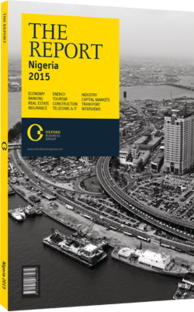The industry has come together to urge the passage of a national building code
For the past decade Nigeria’s construction industry has remained lively despite the lack of federal building laws. Though a draft National Building Code (NBC) was introduced in 2006, the legislation has been stuck in government limbo since August of that year. As of early 2015, it had yet to be formally endorsed by the National Assembly. While most of Nigeria’s large contractors abide by international building standards or state building codes, many smaller construction firms do not – a situation that has been linked to the rising number of construction-related incidents in recent years, including several collapsed buildings. In 2013 and 2014, therefore, many industry stakeholders have grown louder in calling for the government to finally back the NBC.
Development & Delay
The NBC was the result of a series of meetings organised in 2006 by the Federal Executive Council on Housing and Urban Development (FECHUD), a body made up of members of Nigeria’s Cabinet. The meetings brought together a range of industry stakeholders to hash out Nigeria’s first building code, which was considered a relatively straightforward means of overcoming a number of pressing issues. In the draft NBC’s preamble, FECHUD listed a handful of problems the code was meant to solve, including the “planlessness of our towns and cities; incessant collapse of buildings; dearth of referenced design standards for professionals; use of non-professionals; use of untested products and materials ... [and] lack of adequate regulations and sanctions against offenders”.
The FECHUD meetings were attended by a wide variety of private sector representatives from relevant industries, including architects, contractors, engineers, urban planners, surveyors and valuators. Also present were officials from the Ministry of Environment, the Ministry of Health, and the Ministry of Lands, Housing and Urban Development, as well as the Standards Organisation of Nigeria, various NGOs and state-level authorities. The draft NBC was based on input from these stakeholders and on a number of pre-existing building codes from around the world. The resulting document aimed to “set minimum standards on building, predesign, design, construction and post-construction stages, with a view to ensuring quality, safety and proficiency in the building industry”. The draft was then sent to the National Assembly for final approval in August 2006, where it has been stuck ever since.
Continuing Challenges
In the eight years since the NBC was drafted, many of the issues it was meant to fix have proliferated. The collapse in June 2014 of a four-storey building under construction in the southeastern city of Onitsha killed 15 people. From 2007 through late November 2013, more than 130 buildings reportedly collapsed in Lagos, the country’s largest city and commercial capital, according to the governmentappointed Tribunal of Enquiry assigned to look into the matter. “It is time to stop this incidence of building collapse,” Babatunde Fashola, the outgoing governor of Lagos State, told local media in August 2013. “If professionals [elsewhere] in the world build skyscrapers and [they do not] collapse, how come we build threestorey buildings and they collapse?”
Fashola is just one of many local players who have voiced concerns. After a spate of further collapses in late 2013 and the first half of 2014, even some federal entities have called on the government to pass the NBC. “Professionals are unanimous that cement is not responsible for building collapse,” read a joint statement by cement companies and other stakeholders who attended a conference hosted by Lafarge Cement in Lagos in April 2014. As contributing factors, the missive identified “faulty designs … non-involvement of professionals in building projects [and] overloading due to change in initial building plans.” It went on, “The NBC should, therefore, be forwarded without further delay to the National Assembly for consideration and passage to achieve the desired sanity and safety in the building industry”. The Nigerian Institute of Building issued a similar statement in June 2014. Its president, Tunde Lasabi, also attributed the rising frequency of building collapses to a lack of federal building standards.
You have reached the limit of premium articles you can view for free.
Choose from the options below to purchase print or digital editions of our Reports. You can also purchase a website subscription giving you unlimited access to all of our Reports online for 12 months.
If you have already purchased this Report or have a website subscription, please login to continue.

